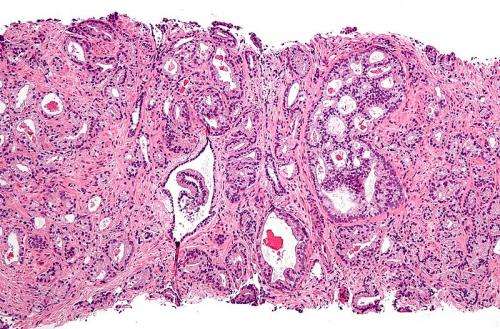Darolutamide showed similar benefits for Black patients as observed in the overall population


Black/African American patients with prostate cancer who were treated with the androgen receptor inhibitor darolutamide (Nubeqa) had clinical outcomes similar to those observed in the overall clinical trial population, according to results from the ARAMIS phase III clinical trial presented at the 14th AACR Conference on the Science of Cancer Health Disparities in Racial/Ethnic Minorities and the Medically Underserved, held online October 6-8, 2021.
“Compared with other racial and ethnic groups, Black/African American individuals have disproportionately higher rates of prostate cancer incidence and mortality,” said presenter Neal Shore, MD, the medical director of the Carolina Urologic Research Center. “Despite this disparity, many clinical trials of prostate cancer therapies fail to publish demographic information on race and ethnicity.”
The ARAMIS phase III clinical trial was designed to evaluate the efficacy and safety of the androgen receptor inhibitor darolutamide compared with placebo in combination with androgen-deprivation therapy in patients with high-risk nonmetastatic castration-resistant prostate cancer. In contrast to existing androgen receptor inhibitors, darolutamide exhibits low penetration of the blood-brain barrier and, therefore, may be associated with less risk of adverse events of the central nervous system, explained Shore. In addition, he noted that darolutamide has low potential to interact with other common medications.
Shore and colleagues previously reported that darolutamide significantly improved metastasis-free survival and overall survival and exhibited a favorable safety profile in patients enrolled in the ARAMIS trial. Their latest analyses evaluated the safety and efficacy of darolutamide specifically for the Black/African American patients enrolled in the trial.
Among the 52 Black/African American patients included in the analysis, 28 were treated with darolutamide, and 24 received placebo. Patients treated with darolutamide compared with those who received placebo had longer metastasis-free survival (median not reached in the darolutamide arm vs. 12.4 months) and a higher three-year overall survival rate (100 percent vs. 71 percent). Men treated with darolutamide also had longer time to first cytotoxic chemotherapy and longer time to disease progression.
Furthermore, the safety profile of darolutamide among Black/African American patients was consistent with the results from the overall study population. The incidence of adverse events (82 percent vs. 92 percent) and treatment discontinuation due to adverse events (4 percent vs. 17 percent) was lower for darolutamide-treated patients compared with placebo-treated patients.
“Darolutamide showed similar benefits for Black/African American patients as observed in the overall ARAMIS population,” said Shore. “Our study provides important findings that help to address the lack of data in Black/African American patients who are disproportionally affected by prostate cancer. Additional research is warranted to better understand the disparity in outcomes in these patients and help guide treatment choices tailored to their individualized health care needs.”
Source: Read Full Article